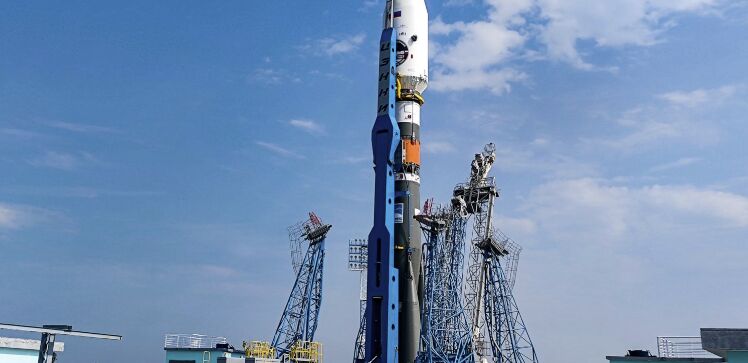Russia Blasts Off to the Moon in Historic Lunar Mission, Aiming to Beat India in Race for Space Supremacy
Russia has launched the Luna-25 mission, its first moon mission in almost 50 years. The mission aims to land on the moon and collect surface samples, showcasing Russia's space capabilities and aiming to establish itself as a space superpower. Despite challenges posed by sanctions, Russia remains determined to make significant advancements in its space program.
In a thrilling display of space exploration, Russia has launched its first moon mission in almost 50 years. The Luna-25 craft, carrying a lunar landing module, blasted off from Russia's Vostochny spaceport in the Far East. The mission aims to land on the moon ahead of India's Chandrayaan-3, with both spacecraft expected to reach their destination on August 23. The Luna-25 mission will take approximately 5.5 days to travel to the moon's vicinity before spending three to seven days orbiting at around 100 kilometers. It will then head for the moon's south pole, an area of great interest to scientists due to the possibility of finding water or its building blocks.
🇷🇺 Russia has launched their first mission to the moon in nearly 50 years. pic.twitter.com/5iaamKHYHh
— Jackson Hinkle 🇺🇸 (@jacksonhinklle) August 10, 2023
The successful landing of the Luna-25 will be a significant achievement for Russia, which has experienced setbacks and delays in its space program in recent years. Russia's space agency, Roscosmos, is eager to demonstrate the country's ability to deliver payloads to the moon and secure its access to the lunar surface. With the goal of political competition in mind, Russia seeks to compete with China and the United States, as well as other countries vying for the title of space superpower. Due to sanctions imposed on Russia after its invasion of Ukraine, the country has faced challenges in accessing Western technology, impacting its space program.
As a result, the Luna-25 had to abandon the idea of carrying a small moon rover to reduce weight and improve reliability. Nevertheless, the main objective for Roscosmos is to land on the moon and recover lost Soviet expertise. The launch of the Luna-25 represents a key milestone in Russian President Vladimir Putin's efforts to establish Russia as a space superpower. The Vostochny spaceport, a project close to Putin's heart, plays a crucial role in this endeavor by allowing Russian launches to be conducted domestically rather than relying on the Baikonur Cosmodrome in Kazakhstan.
While Russia embarks on this lunar mission, India's Chandrayaan-3 is also on its way to the moon's south pole. The competition between these nations further intensifies the pursuit to claim the title of space superpower. However, Roscosmos assures that there is enough space on the moon for all parties involved and that there is no possibility of collision between the spacecraft. The Luna-25 mission aims to collect surface samples from the moon, contributing to a better understanding of the lunar environment and potentially paving the way for future human colonies.
By avoiding incident and successfully landing on the moon, Russia seeks to boost its prestige in space exploration and demonstrate its capabilities to the international community. In a time when space exploration is driven by diplomatic and technological competition, the Luna-25 mission represents a crucial step for Russia in the Brain Olympics. The successful execution of this mission will not only enrich international science but also reaffirm Russia's position as a major player in space exploration. Despite challenges posed by sanctions and the need for self-reliance, Russia remains determined to make significant advancements in its space program and expand its influence in the cosmos.




